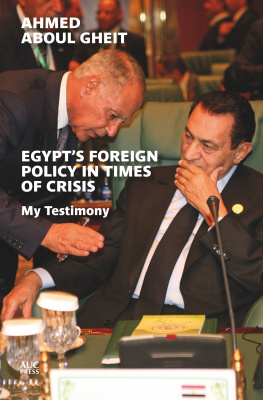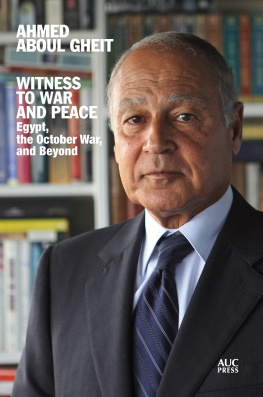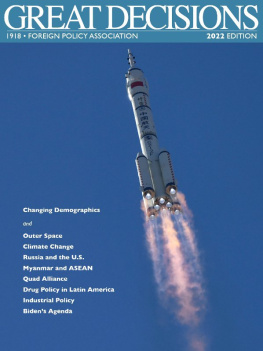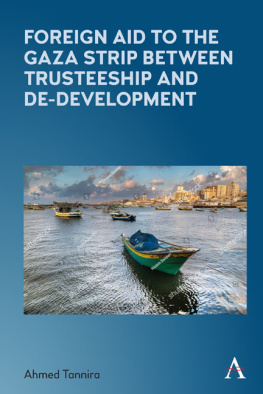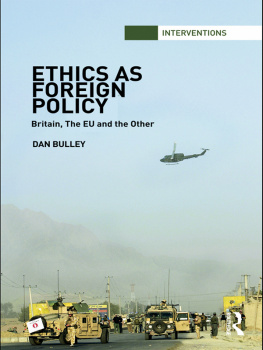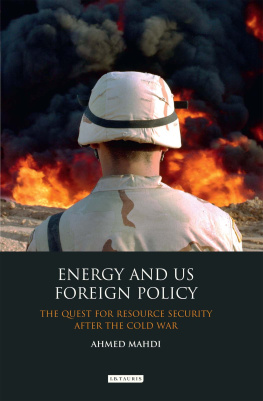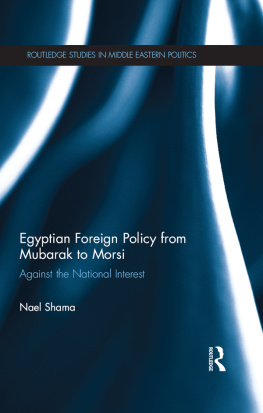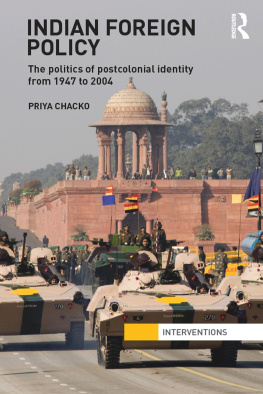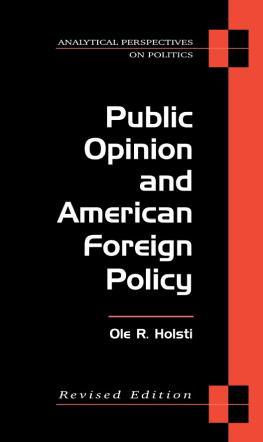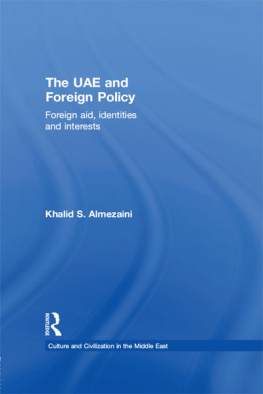EGYPTS FOREIGN
POLICY IN TIMES
OF CRISIS
EGYPTS FOREIGN
POLICY IN TIMES
OF CRISIS
My Testimony
AHMED ABOUL GHEIT
The American University in Cairo Press
Cairo New York
This electronic edition published in 2020 by
The American University in Cairo Press
113 Sharia Kasr el Aini, Cairo, Egypt
One Rockefeller Plaza, New York, NY 10020
www.aucpress.com
Copyright 2020 by Nahdet Misr Publishing House
First published in Arabic in 2013 by Nahdet Misr as Shahadati: al-siyasa al-kharijiya al-misriya, 20042011
English translation copyright 2020 by the American University in Cairo Press
Translated by Abeer Mustafa and Wafya Ibrahim
Translation revised by Mohamed Helal
English translation supported by the Arab League Educational, Cultural and Scientific Organization (ALESCO)
All rights reserved. No part of this publication may be reproduced, stored in a retrieval system, or transmitted in any form or by any means, electronic, mechanical, photocopying, recording, or otherwise, without the prior written permission of the publisher.
ISBN 978 977 416 960 1
eISBN 978 161 797 971 2
Version 1
To Laila,
My dearest and most loyal friend, the one who sincerely criticized, praised from the heart, and always supported me. Smiling and optimistic Laila who did her very best to raise the two precious jewels in our lives, my sons Kamal and Ali. Laila, the one who made me a proud father.
To you, my life companion, my dear wife, I dedicate this book.
CONTENTS
Francis J. Ricciardone
Francis J. Ricciardone
President, The American University in Cairo
I first met Ahmed Aboul Gheit at the Fairmont Hotel near Cairo International Airport in late January 1999, on the first stop of Secretary of State Madeleine Albrights tour of the Middle East to introduce me as the new Special Coordinator for the Transition of Iraq. My appointment represented the Clinton Administrations response to the strong bipartisan Congressional intent, as expressed in the Iraq Liberation Act of October 1998, to use overt diplomatic means to remove the regime headed by Saddam Hussein from power in Iraq and to promote the emergence of a democratic government to replace that regime. The Clinton Administration was well aware of the Arab worlds wariness of such a proposition, and it approached that proclaimed objective with due sobriety.
Aboul Gheit was about to deploy to New York as Egypts Permanent Representative to the United Nations, the next jewel in the crown of an illustrious career in his countrys diplomatic corps. He listened intently to Secretary Albrights explanation of my role before focusing his questions on the ramifications for Egypt. His skepticism was as penetrating as his courtesy was unshakable.
This stage is worth setting because it illustrates the relative roles and self-concepts of the Egyptians and Americans in world affairs at that point in their modern histories. Engaging with the worlds preeminent power at the height of its fin de sicle influence, Aboul Gheit personified both his countrys confidence in its weight in world affairs and its war-weary historical perspective on their dynamics.
Egypts Foreign Policy in Times of Crisis: My Testimony reveals Aboul Gheits thinking behind his mission as foreign minister only a few years following that fateful unilateral American initiative to intervene in shaping the future of this turbulent and complicated region. His career as a leading Egyptian statesman was approaching its climax just as the age of Egyptian giants of war and peaceNasser and Sadatwas rapidly receding. Yet even then, the United States, at the height of its influence, took no steps in the broader region without at least checking in with Egypt. The country was the dominant political, military, and cultural leader of the Arab world, enjoying a historical phase of economic advancement borne of sustained domestic stability and regional peace.
The book brings the English reader behind the curtain of Egyptian statecraftan apparatus historically capably staffed but also traditionally dominated by the vision and will of the head of state. Aboul Gheits rejection of the idea that foreign ministers or a deep state drove Egyptian foreign policy is based not on modesty but on the reality that he portrays. In a government so centralized and so dependent on the President, Aboul Gheit explains, the foreign minister and other related departments were merely executors in this realm. Successful foreign ministers were those whom the President fully trustedand who were humble enough to shun credit for their accomplishments. This historical and political context makes Aboul Gheits own professional accomplishments, even if often rearguard or defensive efforts, stand in sharper relief.
Whether in New York or Cairo, some Western counterparts found Aboul Gheits approach aggressive. Those who understood and respected his authentically Egyptian historical and nationalist perspective, however, found him a disciplined, willing, and creative problem manager, when the parties were not otherwise able to resolve problems with finality. As the United States ambassador to Egypt during several years of Aboul Gheits lengthy tenure as foreign minister, I was privileged to observe firsthand how his deep patriotism, scholarly appreciation of history, and confidence in his countrys identity and historical role, invariably shaped his dealings with foreign counterparts. Aboul Gheit was unrelenting in upholding President Mubaraks vision of Egypts national interests as well as Egyptians keen sense of national dignity. Their direct experience of war and peace with Israel, and of the United States roles in both, contrasted with the indirect historical knowledge and often ideologically driven decision-making of the Americans. By contrast, Aboul Gheits and Mubaraks direct dealings with Israeli counterparts were qualitatively different, even if cooler: they shared with their erstwhile enemies the searing experiential affinities both of all-out war and often vexatious peace. In all his dealings with foreigners as I observed them, Aboul Gheit appeared instinctively to reflect the outlooks and sentiments of the great mass of his countrymen, at all levels of education.
Since leaving office as Egypts foreign minister in the aftermath of the national upheaval of 201 , Aboul Gheits patriotism, erudition, intelligence, and personal discipline continue as always to characterize his long career of public service, now as secretary general of the League of Arab States. His story offers essential insights for contemporary and future generations of foreign diplomats, scholars, businesspeople, and all who seek to deal mutually successfully with Egyptian counterparts. Theirs is a courteous, welcoming, and seductive country. This book, however, bears witness nonetheless to Egypts tenacity, even ruthlessness, in the pursuit of its national interests as Egyptian leaders proclaim them.
As one of the very few firsthand accounts in English of service near the pinnacle of Egyptian statecraft, Aboul Gheits memoir is compelling and exceptionally important. The American University in Cairo Press is honored to bring to an English readership this provocative, personal testimony of a leading Arab statesman, as part of our educational mission to advance mutual understanding across barriers of culture, language, history, and geography.
W ith the historic day of the October 6, 1973 approaching, I realized the need to record everything that I witnessed at the time, so that I could write about that period later on. I was inspired to do so by my readings, over many years, of the writings of historical figures, including generals, political leaders, ministers of defense and foreign affairs, and even ordinary soldiers who fought for their countries. Those figures journaled on a daily basis. They recorded their ideas and evaluated the strategies that their countries implemented in the wars they waged, and kept track of battles that were fought during these wars, traced the conflicts among the peoples and ideologies of their time. Back then, I predicted that the impending war would definitely leave its imprint on the history of Egypt, the region as a whole, and the world. Hence, I decided to record everything I witnessed, as well as my thoughts, starting from October 5. I kept all my papers and documents for later use, I chronicled my reflections and conclusions about the unfolding events, and worked hard to ensure that my recollections of that period were intact in my memory. Since then, my career progressed on an arduous path during which I achieved many successes and faced innumerable challenges. As the years passed, I realizedat a particular moment in 2009that I was allowing time to slip by without writing my observations, which could help my fellow countrymen to continue to serve Egyptian society in the fields that I believe I mastered, or to be more accurate, have learned to master. Therefore, I wrote a series of articles on war and peace based on what I began recording on that fateful day, October 5, 1973. Then I incorporated this whole experience in my book entitled Witness to War and Peace .

